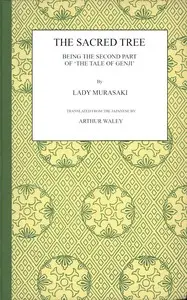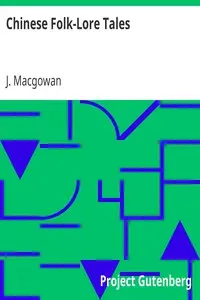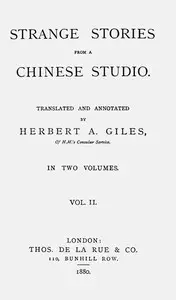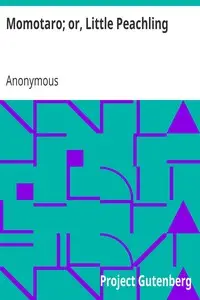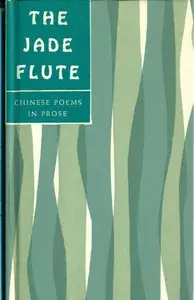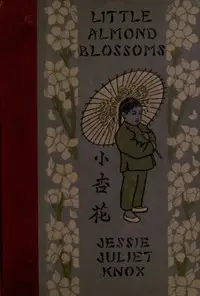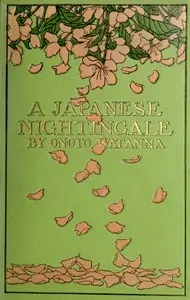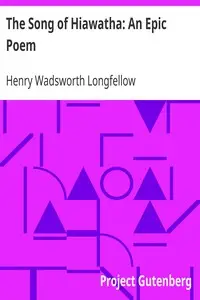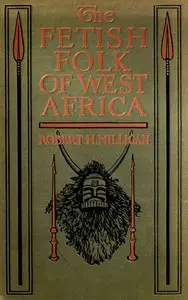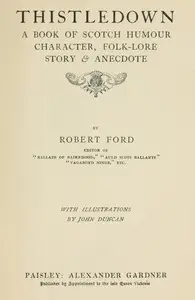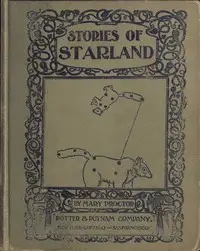"Peach Blossom Shangri-la: Tao Hua Yuan Ji" by Tao Yuan Ming is a story that whisks you away to a hidden world. It's about a fisherman who discovers a secret village, a peaceful escape hidden among peach blossoms where people live happily, untouched by the troubles of the outside world. He spends time with them, enjoying their simple way of life, but when he leaves to tell others about it, the path back disappears, leaving the reader with a sense of wonder and the idea that true peace might be hard to find and even harder to hold onto.
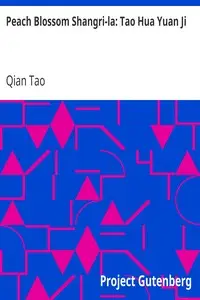
Peach Blossom Shangri-la: Tao Hua Yuan Ji
By Qian Tao
A fisherman's discovery of a secluded, joyful village becomes a fleeting dream when the path back vanishes, leaving only the echo of perfect tranquility.
Summary
About the AuthorTao Yuanming, also known as Tao Qian, was a Chinese poet and politician who was one of the best-known poets during the Six Dynasties period. He was born during the Eastern Jin dynasty (317–420) and died during the Liu Song (420–479) dynasty. Tao Yuanming spent much of his life in reclusion, living in the countryside, farming, reading, drinking wine, receiving the occasional guest, and writing poems in which he often reflected on the pleasures and difficulties of life, as well as his decision to withdraw from civil service. Tao's simple and direct style was somewhat at odds with the norms for literary writing in his time. In the Tang dynasty (618–907), he was well known as a recluse. During the Northern Song dynasty (960–1127), influential literati figures such as Su Shi (1037–1101) declared him a paragon of authenticity and spontaneity in poetry, predicting that Tao Yuanming would achieve lasting literary fame. However, Tao Yuanming's inclusion in the 6th century literary anthology Wen Xuan argues for at least a beginning of fame in his own era, at least in his own birth area. Tao Yuanming would later be regarded as the foremost representative of what we now know as Fields and Gardens poetry. Tao Yuanming found inspiration in the beauty and serenity of the natural world close at hand. Tao Yuanming is depicted in the Wu Shuang Pu by Jin Guliang.
Tao Yuanming, also known as Tao Qian, was a Chinese poet and politician who was one of the best-known poets during the Six Dynasties period. He was born during the Eastern Jin dynasty (317–420) and died during the Liu Song (420–479) dynasty. Tao Yuanming spent much of his life in reclusion, living in the countryside, farming, reading, drinking wine, receiving the occasional guest, and writing poems in which he often reflected on the pleasures and difficulties of life, as well as his decision to withdraw from civil service. Tao's simple and direct style was somewhat at odds with the norms for literary writing in his time. In the Tang dynasty (618–907), he was well known as a recluse. During the Northern Song dynasty (960–1127), influential literati figures such as Su Shi (1037–1101) declared him a paragon of authenticity and spontaneity in poetry, predicting that Tao Yuanming would achieve lasting literary fame. However, Tao Yuanming's inclusion in the 6th century literary anthology Wen Xuan argues for at least a beginning of fame in his own era, at least in his own birth area. Tao Yuanming would later be regarded as the foremost representative of what we now know as Fields and Gardens poetry. Tao Yuanming found inspiration in the beauty and serenity of the natural world close at hand. Tao Yuanming is depicted in the Wu Shuang Pu by Jin Guliang.

